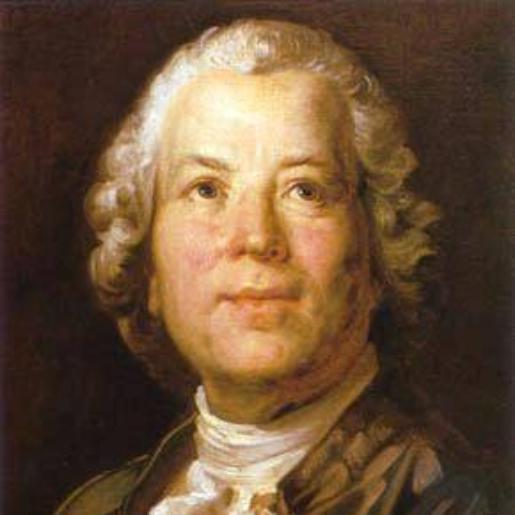Christoph Willibald Gluck
 DEUClassical, Chamber Music
DEUClassical, Chamber Music

 DEUClassical, Chamber Music
DEUClassical, Chamber MusicGerman classical composer Christoph Willibald Gluck made significant contributions to the subgenre of chamber music. Gluck, who was born in the middle of the 18th century, is recognized in the annals of music history for his contributions as a composer and reformer of opera. Gluck was a master at fusing various musical idioms, and his compositions were profound, expressive, and emotionally resonant.
Gluck's compositions were known for their grace, simplicity, and fluidity. He was well known for his talent for composing delicate tunes that were both lovely and approachable. His musical style was based on a profound awareness of the human condition, and themes of love, loss, and atonement were frequently explored in his songs. Gluck's compositions accurately reflected his aesthetic philosophy, and his legacy still motivates musicians and listeners today.
In conclusion, German classical musician Christoph Willibald Gluck made a great impact on the genre of chamber music. His vast awareness of the human experience was reflected in the emotional depth, expressiveness, and profundity of his music. Gluck's contributions as a composer and reformer of opera have earned him a spot in the pantheon of musical greats, and his works still influence musicians and listeners today.
German classical and chamber music composer Christoph Willibald Gluck has created a sizable body of work throughout the course of his career. "Melodie dell'Orfeo," "Dance of the Blessed Spirits," and "Reigen seliger Geister" from the opera Orfeo ed Euridice are some of his most well-known tunes. These works are well known for their exquisiteness, emotional depth, and beauty. It is not surprising that classical music fans all throughout the world continue to perform and enjoy them.
"J'ai Perdu Non Eurydice," a potent aria from the fourth act of Orphee et Eurydice, is another one of Gluck's outstanding compositions. The composition demonstrates Gluck's skillful use of harmony and melody as well as his capacity to arouse powerful emotions in listeners. The gorgeous dance tune "Danse des ombres heureuses" from the same opera is also a mainstay of the classical music repertory. Particularly remarkable in this composition is the deft interaction between the woodwinds and the strings.
Overall, Christoph Willibald Gluck's compositions have endured and are still praised by admirers of classical music all around the world. Given the emotional depth, grace, and beauty of his music, it is easy to understand why his compositions continue to be so well-liked today. Gluck's compositions are likely to enthrall and inspire you, whether you are an experienced classical music fan or a newbie to the art.
German classical and chamber music composer Christoph Willibald Gluck has recently released music that is creating waves in the music world. "Coppelia," his album. His album, Brilliant Piano from the Golden Age (2023), demonstrates his skill and ability to compose exquisite piano works that take the listener to a new place. The collection of beautiful compositions on the album is sure to please any fan of classical music.
The mesmerizing performance of the famous Opera song may be heard on Gluck's most recent single, "Contra-Tenor - Orphee et Eurydice: "J'ai perdu mon Euridyce" (2023). The song demonstrates Gluck's talent for writing passionate, empowering music with a voice that genuinely affects the listener. His further singles, "Gluck: Melodie from 'Orfeo ed Euridice', Wq. 30 (Arr. Kreisler for Violin and Piano) (2022)" and "Gluck: Orfeo ed Euridice, Wq. 30: Melodie (Dance of the Blessed Spirits) (Arr. Sgambati for Piano) (2022)," are equally captivating and demonstrate his breadth as a composer.
"Gluck: Le feste d'Apollo / Orfeo: Che faro senza Euridice? (2022)" is another standout from Gluck's most recent albums. It is a lovely composition that demonstrates his capacity to write music that is both upbeat and melancholy. The soul is often moved by Gluck's music, and this piece is no exception. It is evidence of his talent as a composer and his capacity to elicit feeling via music.
The majority of Christoph Willibald Gluck's most recent output has served as evidence of his skill as a composer. His music is strong, soulful, and capable of moving the listener's soul. Gluck's recent albums show evidence of his talent, which includes the capacity to write music that is both upbeat and melancholy. Anyone who enjoys classical and chamber music must listen to his music.
Yuja Wang, Rogerio Tutti, Maria Callas, the Academy of St. Martin in the Fields, and the Hungarian State Opera Choir were just a few of the well-known artists with whom Christoph Willibald Gluck worked. One of his most significant partnerships was with Yuja Wang, with whom he played "Orfeo ed Euridice, Wq. 30 - Arranged Sgambati / Act 2: Melodie dell'Orfeo." This performance, which highlights the brilliance of both Wang and Gluck's works, is widely recognized as one of the best contemporary renditions of Gluck's oeuvre.
Another noteworthy partnership was with Maria Callas, who sang "Orphee Et Eurydice - J'ai Perdu Non Eurydice Acte IV." Callas's emotive voice give Gluck's music an emotional depth, and she is widely considered as one of the greatest Orpheus interpreters in history.
Last but not least, "Gluck: Orphee et Eurydice, Wq. 41, Act 2 Scene 2: No. 30, Danse des ombres heureuses" by Gluck, the Academy of St. Martin in the Fields, and Sir Neville Marriner is a significant undertaking. The complicated and emotional works of Gluck are excellently complemented by the full-bodied, rich sound of the Academy, and Marriner's direction ensures that the performance is carried out with accuracy and sensitivity.
All told, Gluck's musical collaborations have served to take it to new heights, introduce his exquisite and moving pieces to new listeners, and ensure that his legacy endures to this day.